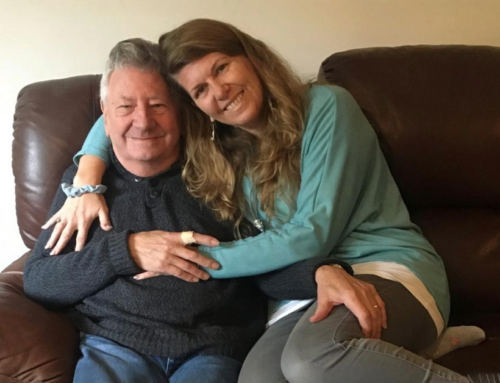Theresa’s husband had been having an affair for over two years before she found out.
During that time, they had lost two parents between them to cancer, gone on the holiday of a lifetime to Australia and supported their son through a nasty case of bullying. Theresa felt that they had been there for each other, loved and enjoyed each other’s company through all of this, and that they were rock solid.

Frank’s story
Frank’s boss had been very supportive. He’d seen that Frank had been having to leave earlier than usual and had asked if there was anything the matter. Frank had confided in him that his wife was finding coping with their toddler daughter very draining so he had agreed to come home and take over the reins, finishing off any outstanding work after they had put her to bed. His boss had been stopping by his desk regularly since then, asking how things were going, and Frank felt valued and appreciated. He was happy he worked for such a progressive, flexible employer.
Yet when a junior colleague in his department was promoted ahead of him, the reason for Frank’s boss’s ‘supportive’ concern became apparent: he was checking whether or not Frank was up to the responsibility of the new role. Frank looked back on all the chats they’d had and on all the work he’d completed well and on time, and he felt cheated and resentful. He’d even taken his boss out for a slap up lunch to say thanks for his support. Frank now wondered whether his boss had been plotting against him all along, and spent long hours awake in bed unable to sleep because he was raking through every conversation they’d had for months and imagining his boss’s negative thoughts towards him.
Altered perceptions
Theresa’s story and Frank’s story may be far apart in context but they share a theme of altered perceptions. We all read our experiences in based on the information that is available to us at the time, mixed in with our assumptions, previous knowledge and the mood we’re in. Theresa and Frank felt fully supported, then angry and resentful when they looked back at the experience with fresh knowledge.
Yet they were not wrong, stupid or naïve to feel happy at the time. And it is completely understandable why they may change how they interpret those past events given the information they have now. But does it serve them to dig over events of the past and view them as more true / different than they had previously thought?
Taking it personally
Most of us would find it hard not to take personally what Theresa and Frank experienced and to blame the ‘errant’ husband and ‘unfair’ boss, yet the cost is great to ourselves as we carry around the burden of resentment, which is like allowing the people we most dislike to reside in our heads rent free. It also means that we are far more likely to go to War with other people in our lives, becoming less tolerant, more mistrusting and more cynical – so we allow ourselves to become victims repeatedly, whilst continuing the cycle of blame.
Breaking the cycle
A great way of breaking this cycle is to ask ourselves “what else could this mean?” We don’t need to know the truth of why people do the things that they do – because the ‘truth’ is only ever a perception that is based on the information we have at the time, which we interpret through the lens of our past experiences. So, when Theresa chooses to decide that her husband’s affair was nothing to do with anything she did or didn’t do (e.g. it was about Theresa’s husband being self-destructive because of his own demons, he has a sex addiction than he believes can only be fulfilled by other people etc.), and Frank’s boss’s decision was nothing to do with anything Frank’s personal circumstances (e.g. Frank’s boss was under pressure from his boss to meet the unpublished diversity statistics, he was having an affair with the person he promoted etc.), it allows them to begin to feel differently.
It is that simple. And this doesn’t mean it is easy, it is a new practise.
The legacy of the past
Most of us have been brought up to think that other people and circumstances cause our pain. And it’s so much easier to blame other people and feel victimised (after all, others in our friendship and family circles understand this way of operating) than to consider that we can feel entirely differently once we question our thinking and perceptions. For more on this, you might like this post. Otherwise, do come along to a War to Peace workshop and experience it for yourself.
Over to you
- When you find yourself digging up the past in your mind, consider the thoughts you have at the time and the thoughts you have now. What would be a more helpful way of thinking about this situation and the people involved?
- If you are stuck and feeling very hostile and hurt, a healthy vent is extremely helpful to get out all the emotional pain and rage you are feeling. You can bash a cushion with a baseball bat whilst screaming or, if you’re worried about the neighbours, write a completely uncensored letter to the person you feel has hurt you, really let yourself say everything you ever wanted to say to them. Then burn it. You will then be in a more resourceful emotional state to consider thinking about them in a different and more helpful way.
Could you, or someone you know, benefit from War to Peace®?
If you, or someone you know, could benefit from learning more about how to remain effective and untriggered at work and at home, consider War to Peace®. These workshops can be held in your workplace and away from it. Spaces for our next public course that anyone may attend can be booked here:






For one, I have zero tolerance for cheating. That’s a big no-no for me.
Thanks for taking the time to comment Ivan and apologies that I’ve only been notified of it today! What do you mean by zero tolerance? That’s to say, do you mean the relationships would be over for you?
I ask the question because with War to Peace we can stay in relationship with the person or leave them – and with either action we can remain at War or at Peace with them. So War to Peace is less about our actions (e.g. staying or leaving) and more about how are are being towards other people e.g. how we perceive them, how we are feeling about them, how we are being towards them – especially when they do things that may go against our values.